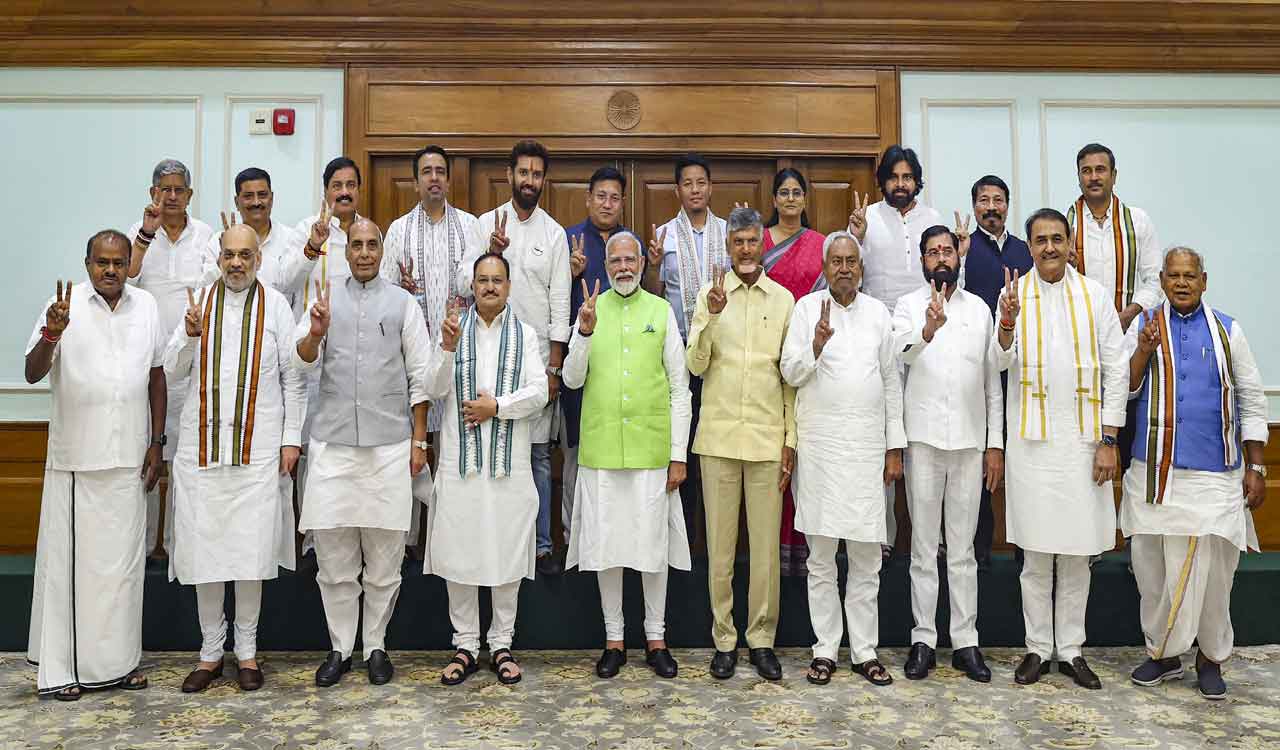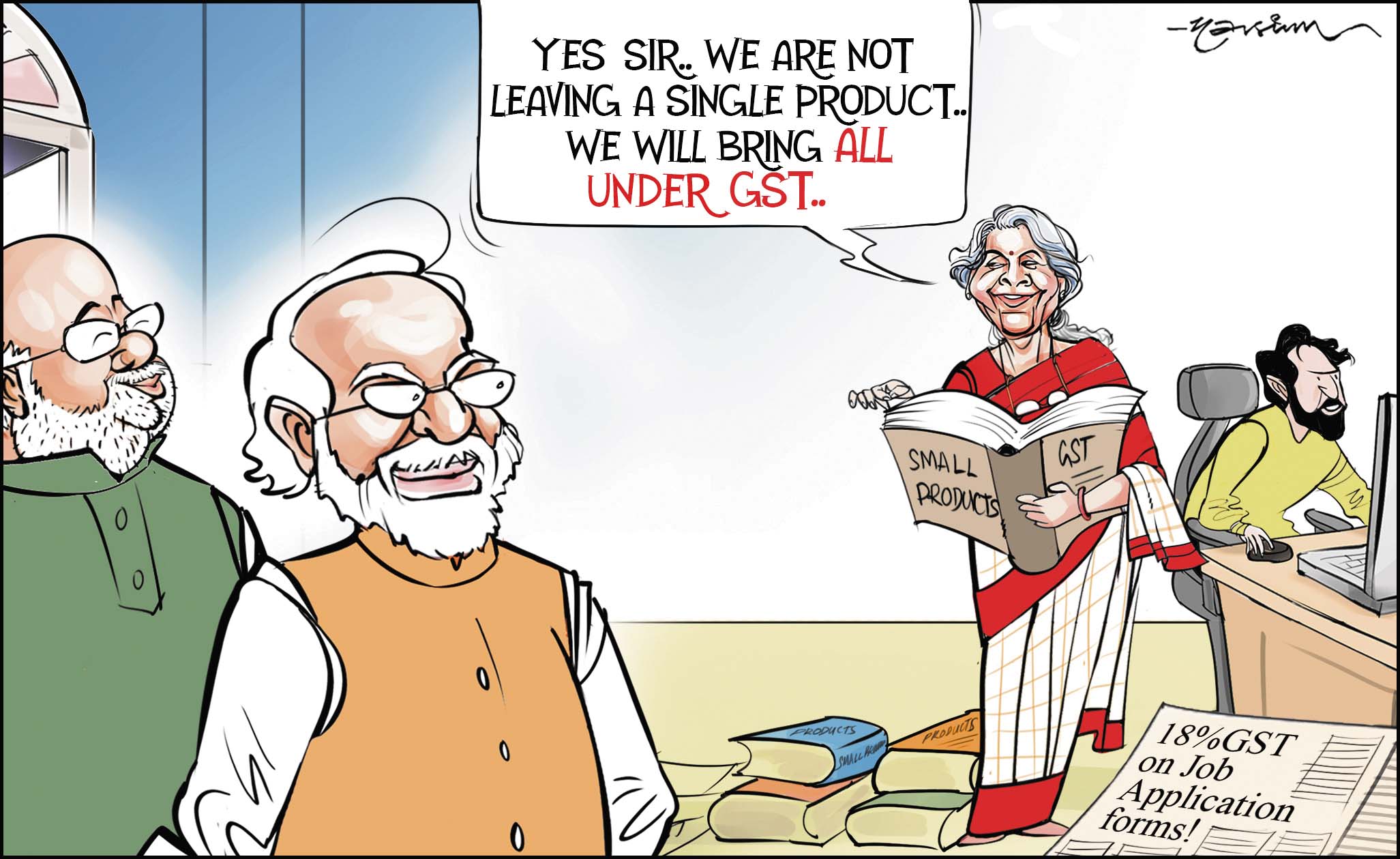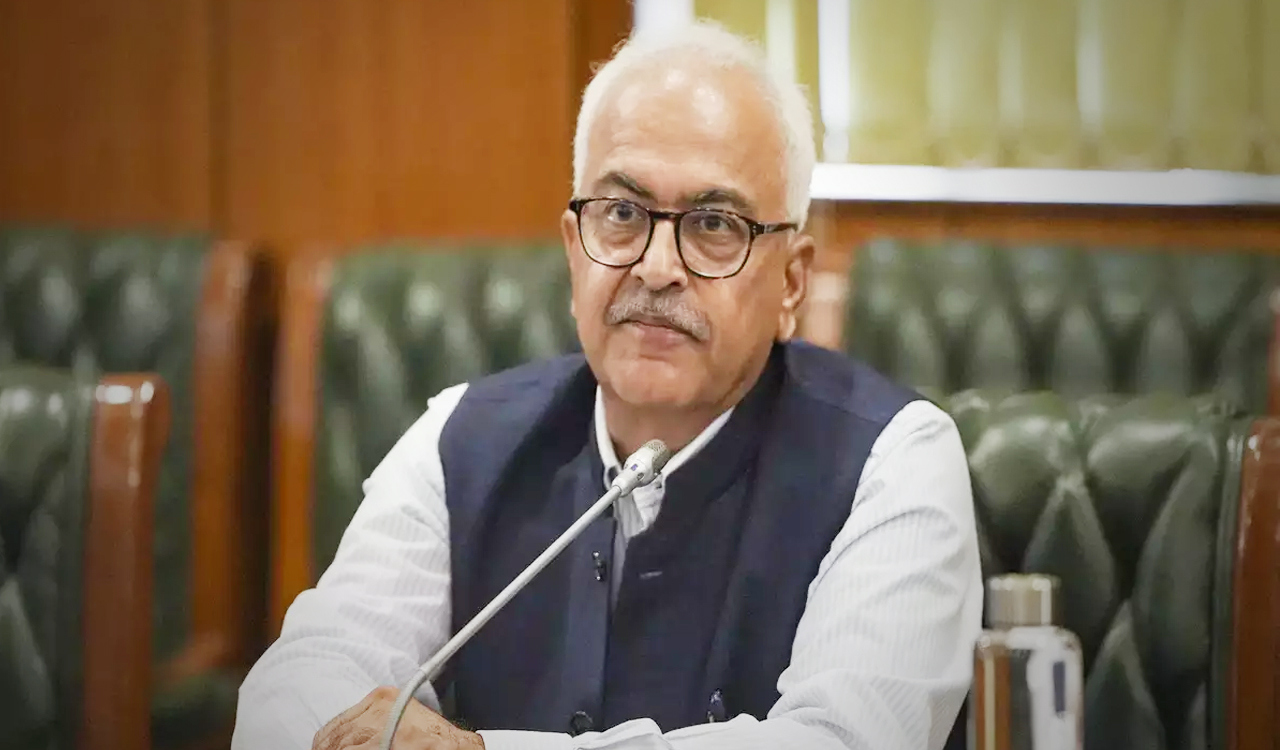Editorial: Follow coalition dharma
The principles of ‘Raj Dharma’ that Vajpayee spoke about must guide Modi in his third term

As Prime Minister Narendra Modi gets down to the task of running a coalition government — an unfamiliar territory for the self-absorbed strongman that he has been — he would do well to follow the advice given to him more than two decades ago by then-Prime Minister Atal Bihari Vajpayee, a master of consensus-building politics. In the aftermath of the Godhra riots that damaged the country’s image, a deeply hurt Vajpayee had publicly asked Modi, who was then Chief Minister of Gujarat, to follow ‘Raj Dharma’ and ensure justice for all. With his aura of invincibility being diminished by the humbling verdict and the BJP falling short of the majority mark on its own, Modi would now be forced to shed his familiar autocratic style and embrace an accommodative and consensual approach to governance in his third term that began on a grand note with a glittering oath-taking ceremony at the lawns of Rashtrapati Bhavan in the presence of a large gathering, including heads of state from seven neighbouring countries. The principles of ‘Raj Dharma’ that Vajpayee spoke about must guide Modi as he navigates the complexities of a coalition arrangement and the challenges of balancing the expectations of alliance partners. Unlike his predecessors, Modi has no experience in running a coalition government because he had absolute majority in Parliament for two terms and an unquestioned authority in the party. The tone and tenor of his remarks at a meeting with the newly elected MPs, emphasising the importance of consensus building, suggested a shift in his tactics.
The induction of a record 72 ministers and a high representation of the allies in the Cabinet — 11 compared with five ministers in 2014 and four in 2019 — reflected the new reality. The saffron party’s dependence on secular parties like the Telugu Desam (16 MPs) and Janata Dal (United) (12 MPs) could present a big challenge for Modi and may curtail some of the more authoritarian tendencies of his government in the past. Both the regional parties, whose leaders were critics of Modi in the not-so-distant past, are expected to not only extract their pound of flesh but also keep the BJP-led dispensation on its toes. In his first remarks after the announcement of the election results, Modi said that mutual trust was at the core of the NDA and promised that he would strive to ensure unanimity in all decisions of his government during his third term. This trust would be put to the test as the government gets down to brass tacks. Over the past decade, the BJP has steamrollered one Bill after another through Parliament, thanks to compliant allies and a weak opposition. However, neither the saffron party’s partners nor rivals will be a pushover this time. A rejuvenated Congress will corner the government on public issues.
Related News
-
Cartoon Today on December 25, 2024
-
Former Home Secretary Ajay Kumar Bhalla appointed Manipur Governor, Kerala Governor shifted to Bihar
-
Kuwait bestows its highest honour ‘The Order of Mubarak Al Kabeer’ to PM Modi
-
PM Modi to attend Christmas celebrations hosted by Catholic Bishops’ Conference of India tomorrow
-
Save future of Telangana NEET PG aspirants, IMA writes to CM Revanth Reddy
33 mins ago -
Telangana techie loses Rs 4.15 lakh to online gold trading fraud
1 hour ago -
Hyderabad: Couple working as house help at doctor’s residence held for theft
1 hour ago -
Hyderabad auto driver foils attempt to kidnap young woman, five held
2 hours ago -
Haiti gang attack on journalists covering hospital reopening leaves 2 dead, several wounded
3 hours ago -
21 dead as Mozambique erupts in violence after election court ruling
4 hours ago -
Sandhya Theatre stampede case: Allu Arjun questioned for 3 hours by Chikkadpallly police
12 hours ago -
Telangana: TRSMA pitches for 15% school fee hike and Right to Fee Collection Act
12 hours ago




